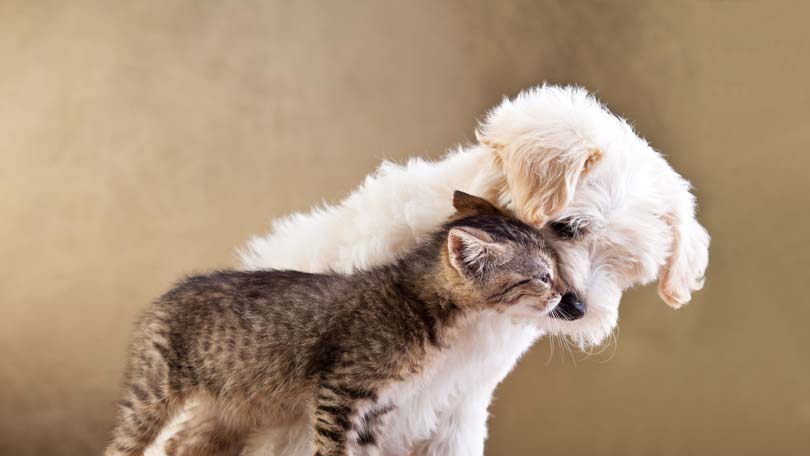
Dogs in the wild are hunters and scavengers, eating anything they come across that resembles food. Food can include anything from live mice to several day old kills left behind by other carnivores to the feces of deer or other herbivores. Nothing is too stinky or too grim for these animals because survival is the name of the game.
Pre-domestication, dogs were still hunters and scavengers but food sources would also include scraps left over from humans. In fact, experts now believe that it was the wolves that overcame their fear of humans and located themselves close to tribes or villages in order to ‘clean up’ after us that became the domesticated dog. Eventually, those wolves either ingratiated themselves into the life of the tribe or the humans decided the wolf pups were cute and stole the friendlier of the young from the dens.
As time went on, dogs had an easier time and rarely had to kill their own food. Man discouraged them from eating livestock and a good working dog, as all dogs were back then, were considered a commodity and would be fed along with the family.
Today, dogs have it easy! For better or worse, the average dog is fed specially formulated food twice a day, every day. Some may still scavenge – counter surfing and dumpster diving have not been bred out of our pets no matter how hard we try. And neither has the odd latent ‘hunter’ instinct, much to the chagrin of the neighborhood wildlife.
Cat Food and the Domesticated Dog
Instincts aside, the average dog has a highly uniform diet specifically formulated for top canine nutrition. That dog will be on the same diet, or a variation of the same diet, for its entire life – from puppy formula to an adult diet to the senior diet.
So can dogs eat cat food? In a word – no. To dumb it down to the simplest possible reason – cat food is formulated for cats while dog food is formulated for dogs.
Cats eat less physical food per pound of body weight then dogs and cats require a higher level of protein, fat and fiber in their diet then dogs. Their food is normally more nutritionally dense and will sometimes have a higher level of sodium depending on the formula.
Unfortunately, because cats tend to be fussier eaters, their food has more flavor and is generally smellier then dog food. This means that dogs tend to prefer it over their own boring kibble but it does not mean that dogs should eat cat food.
The long term effects of dogs eating cat food is not really known as studies have not specifically been performed to determine the outcome. However, a high protein diet has been shown to lower kidney function in dogs and to cause growth problems in puppies. If your dog is prone to pancreatitis or digestive upset, the higher fat in the cat formula could also cause chronic problems as long as they are on the diet. And at the very least, the calorie dense food is going to pack on the pounds while not satisfying their hunger making Fido a fat pro counter surfer and dumpster diver.
What happens if your dog eats a bit of cat food once in a while? Worst-case scenario will be a heavy bout of diarrhea due to the sudden change in diet. To combat this, contact your veterinarian for the correct dose of Pepto-Bismol for your dog’s body weight.
The best option is to find a way to feed your cat while keeping Fido out of the kitty food!
